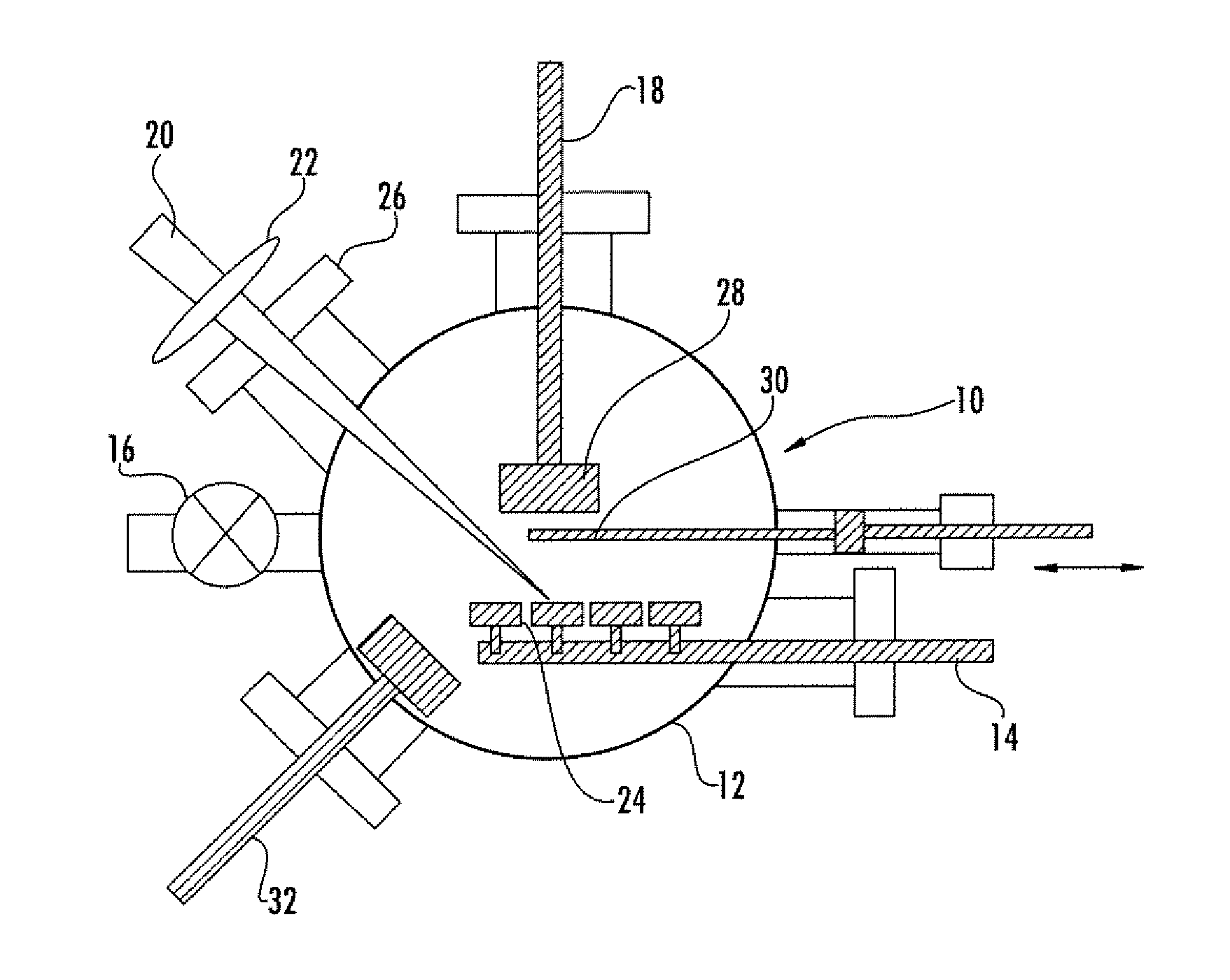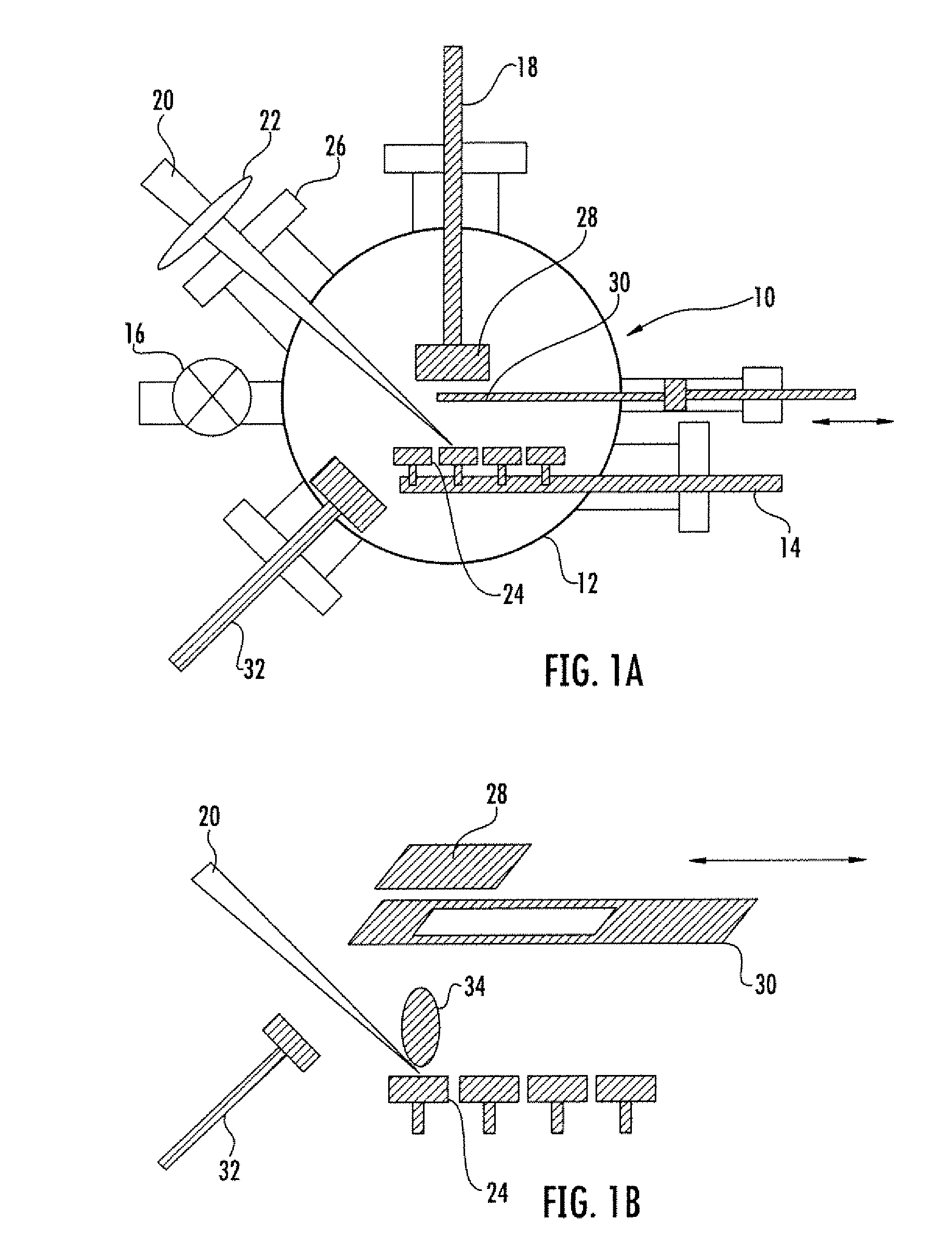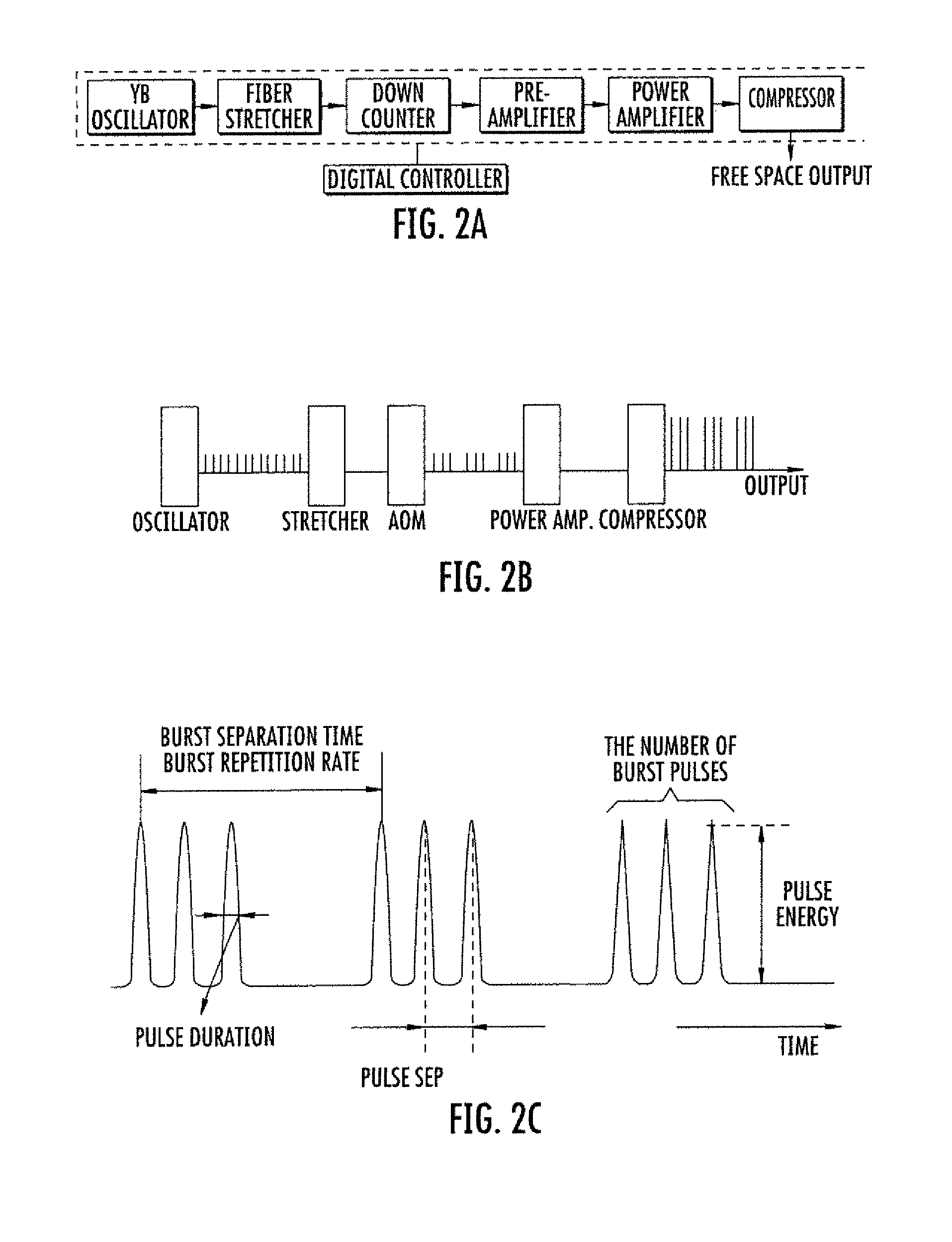Method and apparatus to prepare a substrate for molecular detection
a technology of molecular detection and substrate, which is applied in the direction of spectrometry/spectrophotometry/monochromator, instruments, optical radiation measurement, etc., can solve the problems of uneven active area of sers, non-suitability for forming sers substrates, and uneven thickness of thin films, etc., to achieve enhanced coherent raman spectroscopy, enhanced infrared absorption, and high detection efficiency
- Summary
- Abstract
- Description
- Claims
- Application Information
AI Technical Summary
Benefits of technology
Problems solved by technology
Method used
Image
Examples
Embodiment Construction
[0025]As noted above, it is highly desirable to develop a method for producing a SERS active metal surface on a substrate that is inexpensive, rapid to carry out, highly reproducible, and tunable for detection of various substances including organic and biological molecules. The present invention is a simplified one step process for preparing SERS actaive metal surfaces on substrates having improved reliability, improved reproducibility, reduced cost, and being tunable for optimization of the detection of specific molecules. The present invention utilizes pulsed laser deposition (PLD), particularly using ultrafast lasers, to fabricate a functional SERS active metal surface on a surface of a support material in a single step process. When compared to the commercially available SERS substrate, Klarite®, a SERS substrate prepared according to the present invention shows a better sample detection signal with less fluorescent background signal from the substrate. As noted above, the SERS...
PUM
| Property | Measurement | Unit |
|---|---|---|
| diameter | aaaaa | aaaaa |
| diameter | aaaaa | aaaaa |
| thickness | aaaaa | aaaaa |
Abstract
Description
Claims
Application Information
 Login to View More
Login to View More - R&D
- Intellectual Property
- Life Sciences
- Materials
- Tech Scout
- Unparalleled Data Quality
- Higher Quality Content
- 60% Fewer Hallucinations
Browse by: Latest US Patents, China's latest patents, Technical Efficacy Thesaurus, Application Domain, Technology Topic, Popular Technical Reports.
© 2025 PatSnap. All rights reserved.Legal|Privacy policy|Modern Slavery Act Transparency Statement|Sitemap|About US| Contact US: help@patsnap.com



